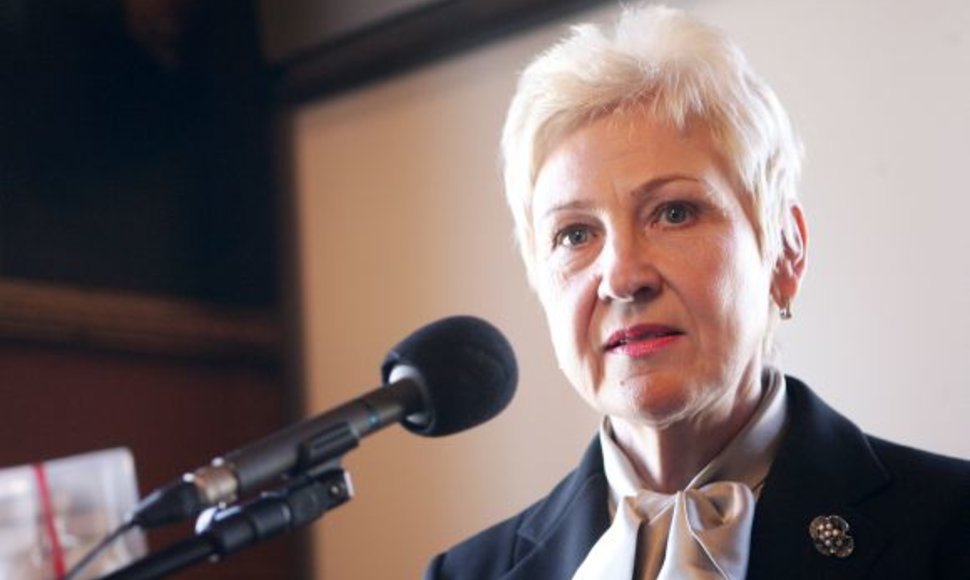The ruling Conservative party, of which Ms Degutienė is a member, has put great emphasis on their family policy during the term in government. Critics, however, claim that the conservatives' notion of family - linked exclusively to marriage and the latter defined as a union between opposite-sex partners - is obsolete and discriminatory.
"Probably many people started this day with a kiss for their loved one, with a nice and soft word for him or her. I would like to stress that St. Valentine's Day is a festival celebrating real family based on the union of a man and a woman," Degutienė was quoted as saying in a statement issued by the Parliament's Public Relations Unit.
In the speaker's words, St. Valentine "did not tell young people who approached him to go and live the way they like, but married them in God's presence and led them to family life."
"St. Valentine did not tell young men and women in love that: you have permanent relations of emotional affection, mutual understanding, responsibility, respect, joint education of children and similar relations, so go and live together," Degutiene said, paraphrasing a recent Constitutional Court's decision that ran counter to conservative's family legislation.
Following the Constitutional Court's ruling that marriage is a special but not the only family model, conservatives want to amend the Constitution by including a provision linking family exclusively to marriage. Upon first hearing of the bill, the parliament has already given its initial backing.
The amendment states that "family is formed by a free marriage agreement between man and a woman."
98 members of the Lithuanian Parliament put forward the amendment after the Constitutional Court gave its ruling on the provisions for state family concept last September. The family concept, put forward by the ruling conservative party, was intended as a guide to Lithuania's social policy, yet it contained a definition of family as formed exclusively through marriage, raising fears of possible discrimination of unmarried couples and their children. The Constitutional Court ruled the provision unconstitutional.
According to the ruling, the institution of marriage is "a historical family model which doubtlessly has special value in public life, also ensuring liveliness and historic endurance of a nation and a state." However, marriage is but one possible basis for family, the Court decided.
The current version of Article 38 of the Lithuanian Constitution suggests that "family shall be the basis of society and the State. Family, motherhood, fatherhood and childhood shall be under the protection and care of the State. Marriage shall be concluded upon the free mutual consent of man and woman." Nevertheless, there is no direct link of or indication that family is formed through marriage only.
A survey by RAIT for BNS in October showed that 46 percent of people in Lithuania are in favour of the Constitutional Court's ruling that family is a wider notion than marriage and can be created on other bases too. Meanwhile, 41 percent did not support it. The remaining 13 percent had no opinion on the issue.
The survey revealed that more elder people backed the family-through-marriage approach.
64 percent of respondents, aged 25-34, were in favor of the Constitutional Court's ruling, and only 24 percent of people, aged 65-74, supported this approach.
Last year, MP Aušrinė Marija Pavilionienė of the oppositional Social Democratic Party put forward a bill for creating the institution of partnership. The proposal was met by fierce opposition from the conservatives, not least because it made no provision as to the partners' gender, making it applicable, therefore, to same-sex couples.












